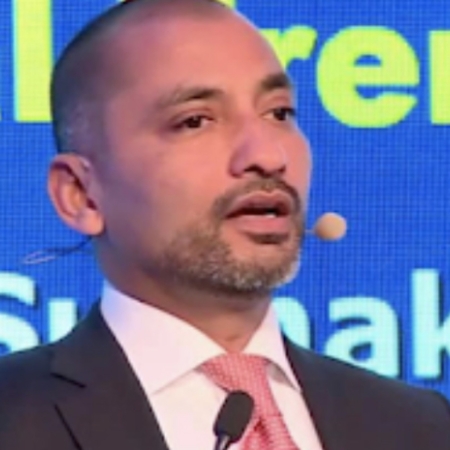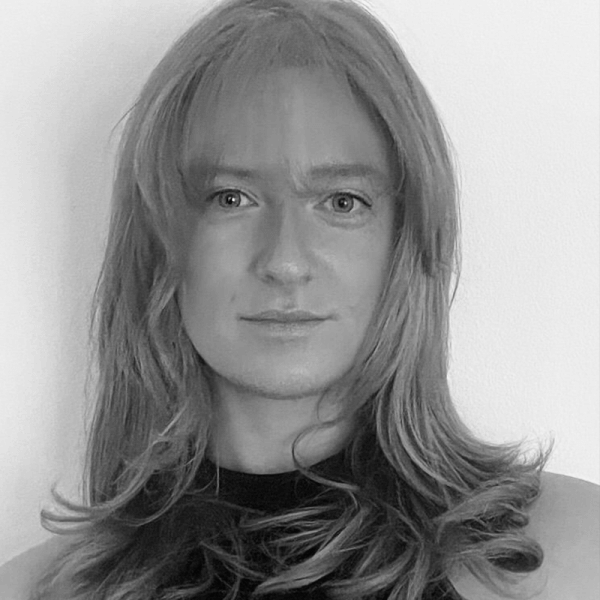October 19, 2021
We chatted to Sudhakar Tomar about the India Middle East Agro Trade Industry & Investment Forum (IMEA-TIIF), of which he is President, and his outlook for the future of pulses.


Sudhakar Tomar is an agribusiness and food commodities social entrepreneur with over 28 years of experience. He has advocated for farmers' rights, food security, and malnutrition reduction in India and abroad and acts as food policy expert to several governments and multilateral organizations. He is on the Executive Committee and in charge of fundraising at the GPC.
I come from a farming background in India, an agrarian country in which the lives of around 70% of the population rotate directly or indirectly around agriculture but who contribute only 17% to the GDP. The number of farms is very high but the size of the farms themselves is very small. If they do something individually, they won’t get the critical mass so my idea was to use the power of collective bargaining to turn them into fully-fledged exporters and enterprises in their own right. I strongly believe that bringing together all agri-producers, especially small and marginal farmers, into efficiently and professionally managed farmer-centric entities, such as Food Producers Organizations, Cooperatives and rural NGOs, can be economical, effective tools - not only to improve their incomes but also to make the prices of food more affordable by reducing intermediaries and improving access to domestic and international markets, as well as finance, inputs and ag-technology.
Following the historic visits of the Prime Minister of India to the UAE, I put my thought process into action in the form of the India East Agro Trade Industry & Investment Forum (IMEA-TIIF). The forum was set up in Dubai, with the support of the Ministry of External Affairs Government of India and in collaboration with the Dubai Multi Commodities Centre (Government of Dubai), to promote bilateral trade, facilitate investments and promote food security initiatives between India and the UAE. The activities of IMEA-TIIF have since reached over 1,600 groups, including AgTech companies, Export Promotion Agencies, Government-Related Entities, Farmer & Producer Organizations, cooperatives, P2P lending networks and Structured Trade Finance Funds.
Having spent more than half of my life in Dubai, I think that a strong India-UAE food & agriculture trade corridor is an important diversifying economic factor in enabling India, the Middle East and Africa to collaborate and achieve their food security objectives.
Pulses provide a sustainable way to address protein insecurity. So much innovation is happening. We need to popularize pulses as the per capita consumption of pulses globally is going down although production may be going up. When you popularize pulses through the initiatives of the GPC such as International Year of Pulses and World Pulse Day, people become more aware that their protein needs should be sustainable, clean and green. That is the way to environmentally and consciously address protein insecurity. Especially in a country like India, because protein needs are going to go crazy. I believe that in India the per capita pulses production is going down and it needs to go up because we have always been a pulses consuming country. But the new ways are yet to come into force in India and even if there’s just a small percentage increase in pulses, that’s a lot. Imagine if 1.4 billion people consume 10% more pulses… I think now it’s gone down to 28g per person per day from 60g per person per day and if it goes back to those high levels, we’d have a demand of more than 60 million tonnes compared to the current levels, which is about 30-35 million.
We really need to promote pulses - not only direct consumption but also in ingredients. It’s become a movement in the last 20 years and now we’re seeing the manifestation. Pulses are everywhere. The speed could be faster but it is happening. Europe and America have been progressing rapidly compared to traditional markets but it doesn’t matter from where the awareness comes, so long as it’s coming.
For a country like India or, for that matter, South Asia, the product has to be innovative, it has to appeal to the masses and it should be aspirational, desirable… there should be excitement around pulses!
Dubai as a city and the UAE as a nation have always been entrepreneurial hubs full of exciting opportunities. I moved to Dubai in 1995 and its size and scale have grown exponentially since then but what has not changed are the 5 key ideologies upon which the UAE is built: projecting itself as a fast-paced, adaptable business hub, having a prudent risk-taking appetite, promoting a healthy and safe lifestyle, building and maintaining great infrastructure and, most importantly, embracing each and every person irrespective of their nationality and beliefs.
Dubai and the United Arab Emirates remain the most important free, vibrant service center in a growing geography of more than 2 billion people. I believe the UAE's competitors still cannot match its pragmatic mixture of quick decisions, freedom and incentives. The UAE's leadership has performed a stunning transformation of a tiny country into a flourishing modern and developed nation with cities such as Dubai and Abu Dhabi surpassing the best in the world. The UAE, with its diversified economy, has shown that there is life beyond recession and that you can progress despite unrest in surrounding countries.
I am no poet but I do like to read poetry. Poetry is a therapeutic bridge that connects empathy to reality. It helps me to understand the world around us and the way in which we relate to each other a little better. My all time favorites are Ghalib, Faiz , Rumi, Khalil Gibran, and I love ‘If’ by Rudyard Kipling. I do attempt to write some poetry; I wrote something for my daughter’s 16th birthday.
She is a bright young girl and is pursuing a career in astrophysics alongside her passion for acting. She wouldn’t need much convincing to start a career in pulses as she is a voracious champion of all things pulses! I would tell her that working in the pulses industry means working for a noble cause: it is green, sustainable, innovative and the answer to global food and protein insecurity. I would add that our business is recession-resilient. It might not be a high-margin, high-profit business but it is scalable and rather price-inelastic.
Unlike many other countries, in India food is a socio-political and economic subject. While consumers have the right to affordable food, the farmer, who is the strongest link in the food supply chain, is sadly the poorest. Rather than joining active politics, I’d like to use my experience and platforms to help rural families to improve their income and give them affordable access to good healthcare and education for their children.
My father was a farmer in the rural part of Uttar Pradesh, in a district called Hardoi, which is about 100 km away from the capital city of Lucknow. Farming in those days was very tough and family land had to be mortgaged at draconian interest rates. It took a long time and a great deal of courage on my father’s part to reclaim his pledged land and redeem the family’s dignity. To provide for his family, my father, like many others in his situation, took up a job with the state police force, leaving my mother and elder siblings to tend to the farm. As part of his law enforcement duties, he travelled from village to village, often taking me - then a four-year-old boy - with him.
I suppose those nomadic early years developed in me a sense of empathy, a will to survive and an ability to connect with people from all walks of life. Two value systems that my father taught were: have an entrepreneurial mindset with a huge capacity for compassion and put your best efforts into whatever you do. I have tried to live up to these as much as I could.
I am often asked the question: how did a farmer’s son become so evolved? For this, I have to thank my father himself for it was he who inspired me to read and travel. My father was a humble man of limited means but he was a voracious reader who liked to travel. I have picked up those two qualities from him. The memory of those formative experiences led me to come up with some mottos to live by: “Be grateful to farmers for they are the poorest but strongest link in our food systems “ and “Keep an open mind."
We all know that life is unpredictable but when we come face to face with such unpredictable situations, it is never easy. It is still difficult for me to believe that I have lost a friend of 25 years but his memories will always remain alive in my heart. His untimely demise has made me realize the fragility of human existence and the absolute need for every business person to have a proper succession plan in place. As the saying goes, “Prepare for a lifetime but be ready to go tomorrow if the time comes.“

Sudhakar Tomar / India / UAE / Dubai / India Middle East Agro Trade Industry & Investment Forum (IMEA-TIIF)
Disclaimer: The opinions or views expressed in this publication are those of the authors or quoted persons. They do not purport to reflect the opinions or views of the Global Pulse Confederation or its members.